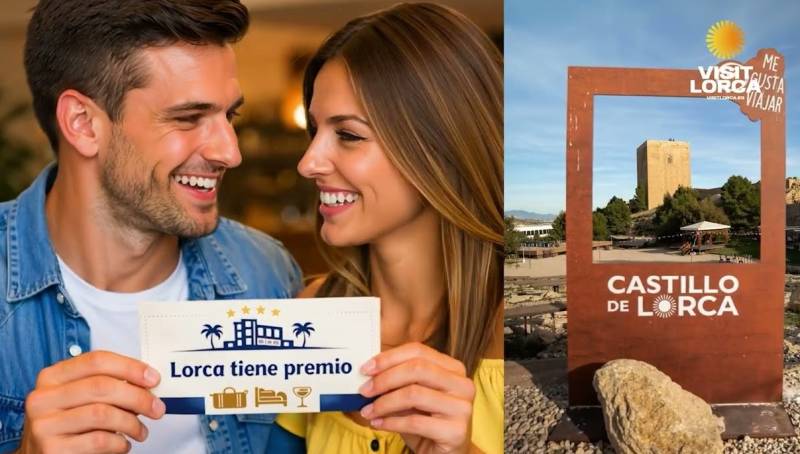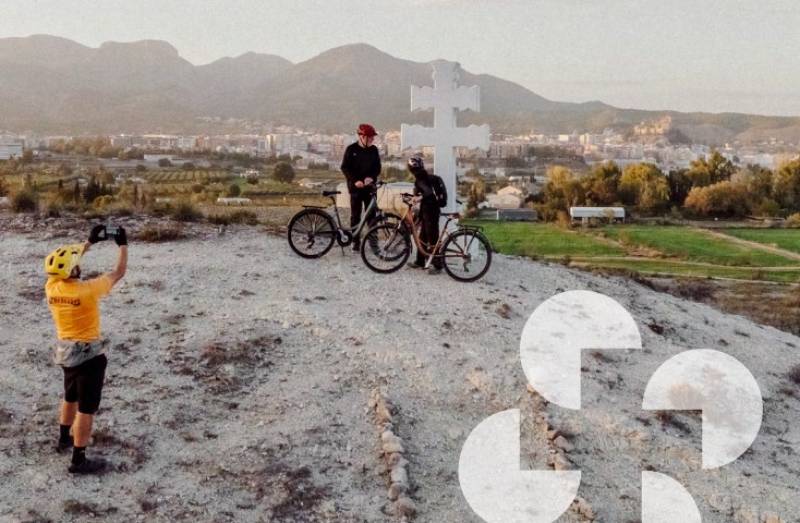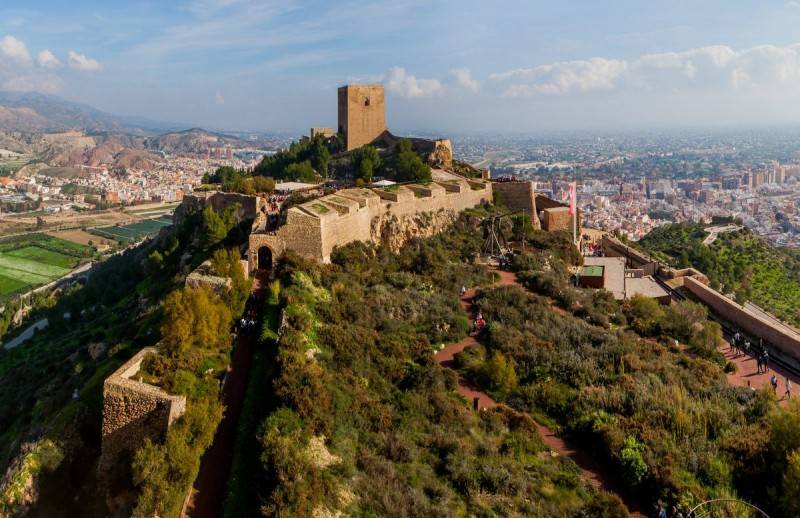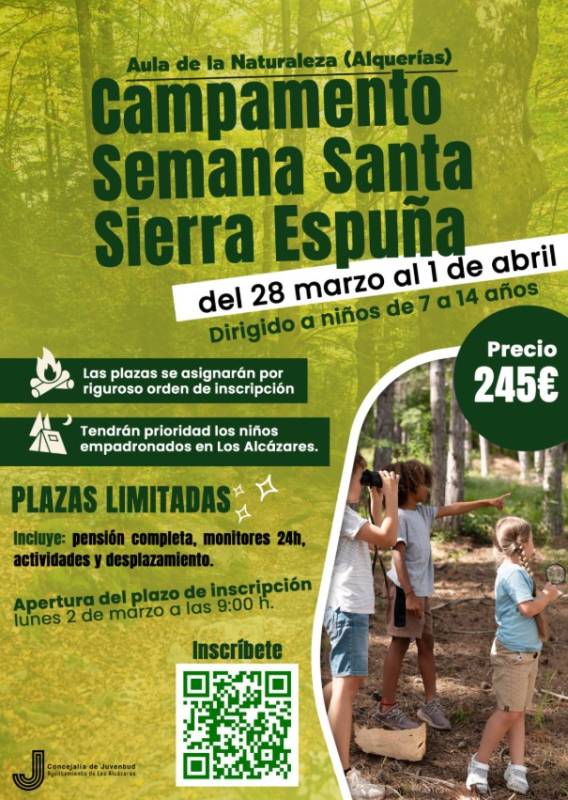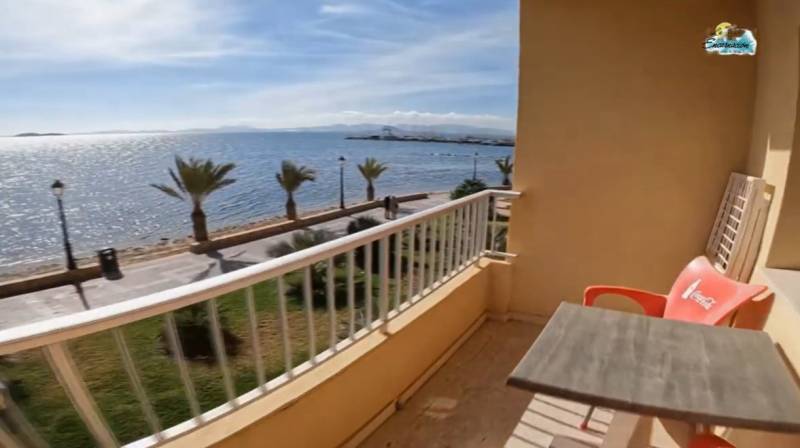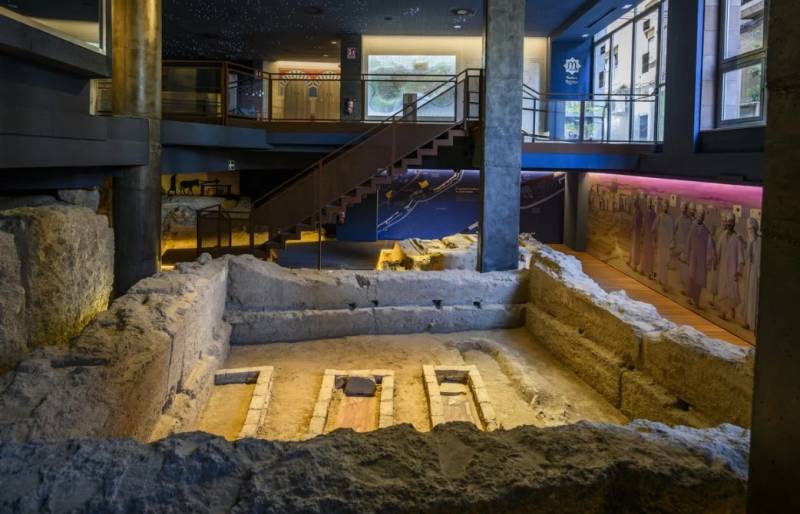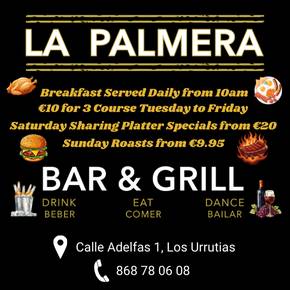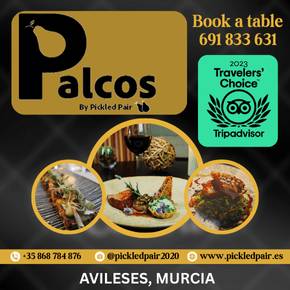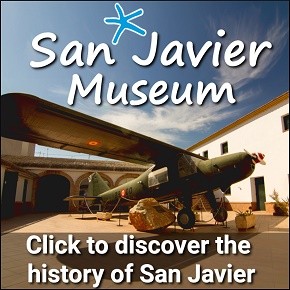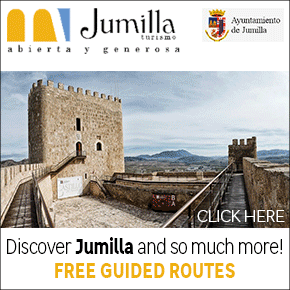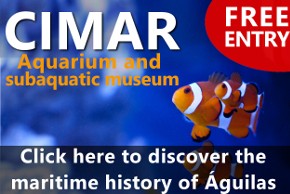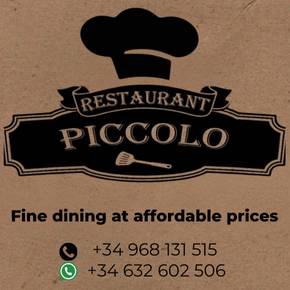- Region
- Vega baja
- Marina Alta
- Marina Baixa
- Alicante
- Baix Vinalopo
- Alto & Mitja Vinalopo
-
ALL TOWNS
- ALICANTE TOWNS
- Albatera
- Alfaz Del Pi
- Alicante City
- Alcoy
- Almoradi
- Benitatxell
- Bigastro
- Benferri
- Benidorm
- Calosa de Segura
- Calpe
- Catral
- Costa Blanca
- Cox
- Daya Vieja
- Denia
- Elche
- Elda
- Granja de Rocamora
- Guardamar del Segura
- Jacarilla
- Los Montesinos
- Orihuela
- Pedreguer
- Pilar de Horadada
- Playa Flamenca
- Quesada
- Rafal
- Redovan
- Rojales
- San Isidro
- Torrevieja
- Comunidad Valenciana
The Museo de Siyâsa in Cieza
The precursor of modern Cieza was an important Moorish Medina which sits atop a craggy peak above the modern town
Cieza has been occupied for more than 7,000 years and the Museo de Siyâsa contains artifacts excavated 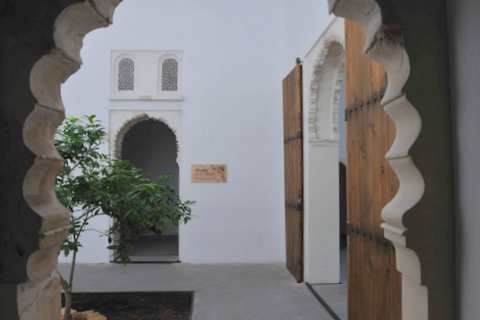 from sites throughout the municipality which amply illustrate the rich historical heritage of this municipality, from the prehistoric to the 20th century, although its main exhibits focus around the former Moorish settlement of Medina Siyâsa.
from sites throughout the municipality which amply illustrate the rich historical heritage of this municipality, from the prehistoric to the 20th century, although its main exhibits focus around the former Moorish settlement of Medina Siyâsa.
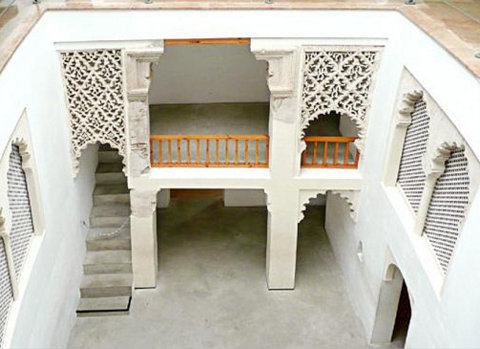 The museum is located in a Modernist building which used to be the Casino in the old quarter of Cieza, and includes a temporary exhibitions hall, as well as a large static display, spread across four floors.
The museum is located in a Modernist building which used to be the Casino in the old quarter of Cieza, and includes a temporary exhibitions hall, as well as a large static display, spread across four floors.
The main focus of the museum is Medina Siyâsa and the museum has a good collection of artifacts, ceramics, and original decorative fretworks, all recovered from the site, but pride of place goes to the 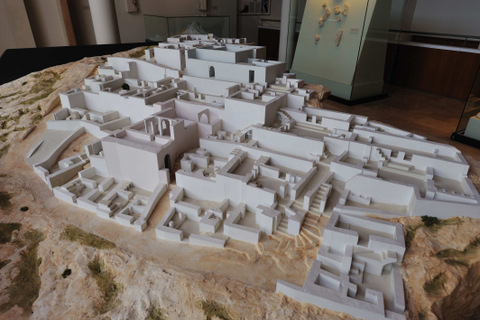 reconstructions of two of the houses which have been excavated on the hill which lies above the modern town: this was the site of Siyâsa before the Christians founded modern Cieza below its Moorish neighbour after the Reconquista in the 13th century.
reconstructions of two of the houses which have been excavated on the hill which lies above the modern town: this was the site of Siyâsa before the Christians founded modern Cieza below its Moorish neighbour after the Reconquista in the 13th century.
From these reconstructed houses it is possible to look out through the large windows at the site on the Monte del Castillo where they were originally located, a clever juxtaposition of the new reconstruction and the original location which helps bring to life the appearance of the town a thousand years ago and understand more about how the original occupants of the houses would have lived. The houses themselves contain arches and doorways which are typical of Nasrid and Almohad architecture, and the distribution of all the 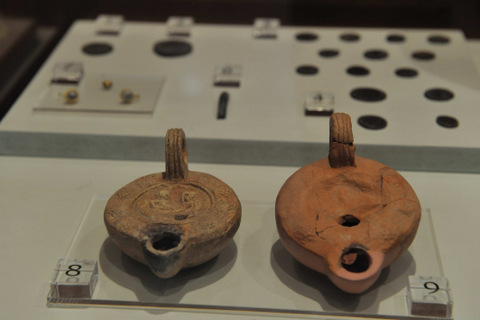 rooms around a central patio is also characteristic of most Moorish dwellings of the Middle Ages. House number 10 also contains a monumental Andalucían portico and decorative stonework.
rooms around a central patio is also characteristic of most Moorish dwellings of the Middle Ages. House number 10 also contains a monumental Andalucían portico and decorative stonework.
The houses also give a clear idea of the manner in which food was stored and then cooked, as well as helping to bring the ruins of the town above to life.
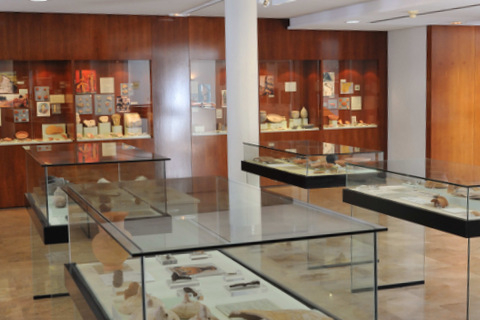 On the top floor are scale models of the old citadel and necropolis of Madina Siyâsa, showing the infrastructures of both the part of the site which has been excavated and the whole settlement, and the recommendation is to visit the museum before going to the actual site in order to gain an understanding of what the actual remains used to be before Siyâsa was abandoned. On the walls around this model are various artifacts which have been excavated at the site of the old Moorish city.
On the top floor are scale models of the old citadel and necropolis of Madina Siyâsa, showing the infrastructures of both the part of the site which has been excavated and the whole settlement, and the recommendation is to visit the museum before going to the actual site in order to gain an understanding of what the actual remains used to be before Siyâsa was abandoned. On the walls around this model are various artifacts which have been excavated at the site of the old Moorish city.
Other areas of the museum contain information and exhibits relating to the prehistoric and proto-historic discoveries made in Cieza, including cave paintings, fossils, ceramics and tools. The first known human occupation of the area dates back 11,000 years in the Cueva de la Serreta of Los Almadenes, the Cueva de la Barca, El Búho and the Barranco de los Grajos, and in the museum visitors can see photographs and drawings of the 21 sites where cave paintings have been found in the municipality of Cieza.
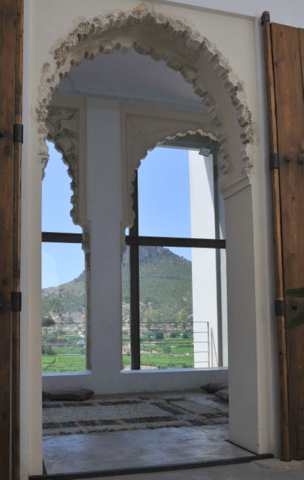 The Argaric and Iberian cultures are also well represented, and in the centuries before and after the birth of Christ various Roman villas are known to have been in charge of administering local agriculture in Cieza.( Click History of Cieza)
The Argaric and Iberian cultures are also well represented, and in the centuries before and after the birth of Christ various Roman villas are known to have been in charge of administering local agriculture in Cieza.( Click History of Cieza)
The museum also houses an old olive press which was in use throughout the twentieth century, and other exhibits include two 18th century coats of arms which used to emblazon the front of the Casa de la Encomienda (the local government building) and two fonts which were previously in the Basílica de Nuestra Señora de la Asunción in the Plaza Mayor. The ground floor also contains an ethnographic display featuring many of the agricultural tools and items of machinery which were used for centuries in the fields of this part of the Ricote valley.
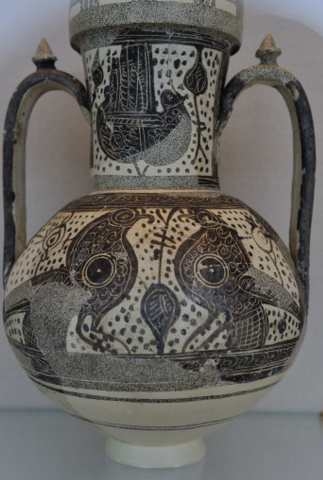 Opening times of the Museo Siyâsa in Cieza are as follows:
Opening times of the Museo Siyâsa in Cieza are as follows:
Between 23rd August and 15th June: Tuesday to Saturday 11.00 to 13.30 and 17.30 to 21.00, Sundays and public holidays 10.30 to 14.00. The museum closes on Mondays.
Between 16th June and 22nd August: Tuesday to Saturday 10.00 to 14.00. The museum closes on Sundays, Mondays and public holidays.
Guided tours can be arranged through the Cieza Tourist Office (telephone 968 453500, opening hours Monday to Friday 8.00 to 15.00) for groups during the week and for individuals at weekends. These tours of the museum last approximately one hour, and others are also available to the site of Medina Siyâsa itself, the Cueva de la Serreta and the sights and monuments of the town centre of Cieza.
Click to contact the Tourist Office in Cieza
Address:Museo Siyâsa
Calle San Sebastián nº 17 Cieza










